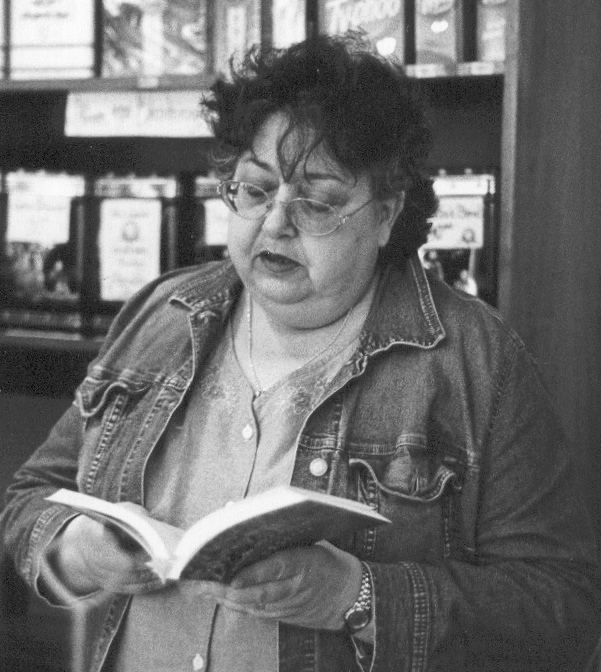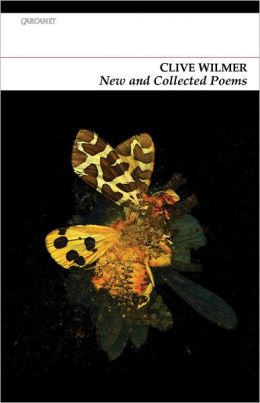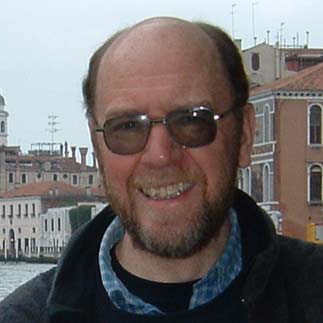
Far from home: a Russian in Sweden (Photo: Jurek Holzer / Svenska)
It’s exhilarating to discover a outstanding poet. It’s also poignant when you first hear about the poet too late. I learned of the existence of Regina Derieva and her death on the same day, when I received a note from her husband, Alexander Deriev, telling me that the poet had passed away on December 11, in Sweden, her lasting home after emigration. She was two months shy of her 65th birthday. A requiem mass for this prolific writer was celebrated at Katolska Kyrkogården Kapell earlier this week, on December 23; she was buried at Norra Begravningsplatsen, where this very Russian poet joined Sweden’s elite, including Alfred Nobel, playwright August Strindberg, Prime Minister Per Albin Hansson, and Nobel poet Nelly Sachs. A tribute page for Derieva is here.

Young poet
She is the author of twenty books of poems, prose, and essays. Her books in English include Inland Sea and Other Poems, In Commemoration of Monument, Instructions for Silence, The Last Island, and Alien Matter. Her work has also appeared in Poetry, Quadrant, Modern Poetry in Translation, Salt, and St. Petersburg Review as well as many Russian magazines. Her work was championed and translated by Daniel Weissbort, another recent death (we wrote about him here and here and here). Said Valentina Polukhina, Weissbort’s widow, “Regina Derieva’s relationship with the world was severe and tender, truthful and tragic; it reflects her own tragic life as well as the tragedies of the country she was born in.”
She was born in Odessa on the Black Sea, in Ukraine now, part of the Soviet Union then. From 1965 until 1990 she lived and worked in Karaganda, Kazakhstan – I understand it’s the back end of the world, a tough little city of labor camps, coal mining, and now, in the post-Soviet era, industrial pollution. She graduated from university with majors in music and Russian philology and literature. Her poetry was not approved by the state, and she was denied publication and guaranteed KGB oversight. Her work came to the attention of Joseph Brodsky, who first encouraged her to leave the Soviet Union.
The Swedish author Bengt Janfeldt (we wrote about him here and here) gave the eulogy this week – I don’t yet have an English translation. However, Bengt once said this of her: “Like Brodsky, Tsvetaeva, she is a very bitter poet. She took every thought to its logical conclusion.” He added, “I believe that Regina is quite an exceptional poet, an unexpected poet. Even though it is not a popular thing to say, she is a masculine poet in her style, her philosophical thought.”

Drawing by Dennis Creffield
I bought Alien Matter online – the last copy in stock, and a bargain at four bucks. Les Murray has a blurb on the back cover: “Science teaches that eighty percent of the universe consists of dark matter, so called. Regina Derieva learned this same fact in a very hard school. She does not consent to it, though. She knows that the hurt truth in us points to a dimension whee, for example, victory is cleansed of battle. Her strict, economical poems never waver from that orientation.”
I’ve never met Les Murray, but in my background reading it appears the poet and I have many common friends. One of them, the Lithuanian poet Tomas Venclova, reviewed Alien Matter in The New Criterion:
Derieva is, first and foremost, a Christian poet, a worthy heir to the long line of metaphysical poets, be they English, French, or Russian. Without inflated rhetoric or didacticism, her poems reach the very core of the Christian experience—a serious and fearless attitude towards life, suffering, and death. The imagery and syntax of the Gospels and the Prophets is, for her, a natural element—just as apocalyptic presentiments and mystical hope form the axis of her world outlook. She perceives atheism as a foreign language. Still, the religious vocabulary in Derieva’s writing is often juxtaposed with everyday slang and the intonations of prisoners’ songs. This is particularly true of her early poems which might be described as a metaphysics of the totalitarian world, with their constant symbolism of walls, barbed wire, lead poisoning, and torture. They describe a region where “war is forever going on.” The poetic word (and the divine Word) in this inferno “annoys the powers that be because it lives.” One discerns here an echo of Akhmatova’s “Requiem” and of Brodsky’s poetry. Looking for her kin, a reader may also think of Eliot. … Derieva’s later poetry strives for the inexpressible (“writing white on white”) even more strongly.

Buried in Sweden, here. (Photo Holger Ellgaard)
In a 1990 letter to her that Alexander Deriev shared with me, Joseph Brodsky wrote:
“There is a point – literally the point of view – which makes it all the same how one’s life is going, whether it is happy or nightmarish (for a life has a very few options). This point is over the life itself, over the literature, and it becomes accessible by a ladder, which has only sixteen steps (as in your poem titled “I Don’t Feel at Home Where I Am”). For a poem is composed of other things than life, and the making of verses offers more choices than life does. And the closer one is to this point, the greater poet he, or she, is.
You, Regina, are indeed this case – a great poet. For the poem titled “I Don’t Feel at Home…” is yours only by name, by excellence. Authentic authorship of this poem is that of poetry itself, of freedom itself. This freedom is closer to you than your pen is to paper. For a long time, I have not seen anything on a par with your poetry either among our fellow countrymen or among the English-speaking poets. And I can guess more or less – I can hear – what it cost you to reach this point, the point over the life and over yourself. This is why the joy of reading your poetry is also heartbreaking. In this poem, you exist in the plane where no one else exists, where no one else can help: there are no kin and, a fortiori, there are no equal to you.”
Here’s the poem he praised:
I don’t feel at home where I am,
or where I spend time, only where,
beyond counting, there’s freedom and calm,
that is, waves, that is, space where, when there,
you consist of pure freedom, which, seen,
turns the crowd, like a Gorgon, to stone,
to pebbles and sand…where life’s mean-
ing lies buried, that never let one
come within cannon shot yet.
From cloud-covered wells untold
pour color and light, a fête
of cupids and Ledas in gold.
That is, silk and honey and sheen.
that is, boon and quiver and call.
that is, all that lives to be free,
needing no words at all.
– Translated by Alan Shaw
Daniel Weissbort has a handful of them here, and the Poetry Foundation has his translation of “Days and the Transit System Grind Their Teeth” here. An interesting post on a Russian literature blog here.

















